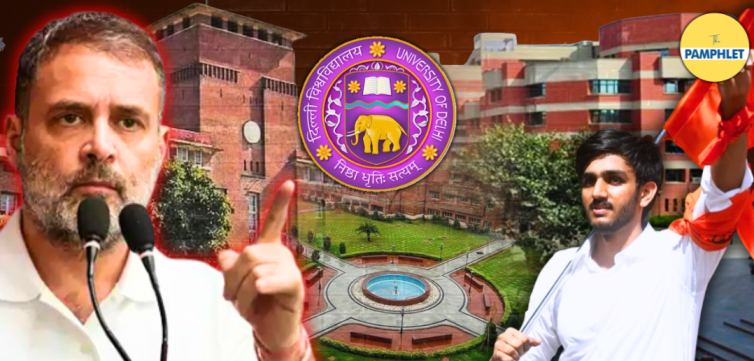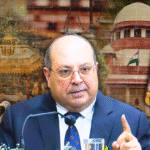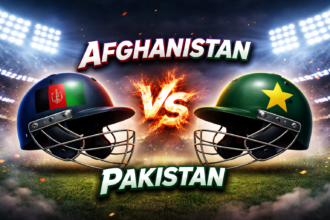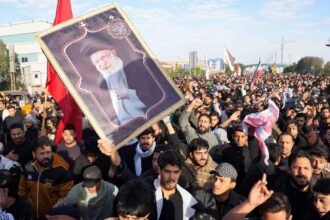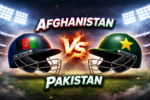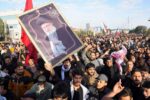Just a day after Congress leader Rahul Gandhi urged India’s Gen Z to “defend the Constitution, protect democracy, and stop vote theft,” Delhi University’s students gave a resounding mandate to the Akhil Bharatiya Vidyarthi Parishad (ABVP), the student body of Rashtriya Swayamsevak Sangh (RSS). Congress student body. National Student Union of India (NSUI), student wing of Congress, suffered a humbling defeat.
The Gen Z rhetoric isn’t just a coincidence, but part of a calculated strategy. Rahul Gandhi has been attempting to tap into youth sentiment, often borrowing the language of global student movements. His latest push echoes the wave of campus-driven political protests in Nepal, where Gen Z mobilisations altered the political conversation. In India, however, the experiment is finding little traction. Carefully curated Instagram reels, aesthetic backdrops, and collaborations with influencers may have boosted Rahul’s digital optics — but the ground reality in Delhi University tells another story.
ABVP dominates the DUSU polls
The 2025 Delhi University Students’ Union (DUSU) results saw the ABVP capture three of the four top positions. Aryan Maan, a national-level footballer and Hansraj College alumnus, won the presidency with 28,841 votes, defeating NSUI’s Joslyn Nandita Choudhary by a huge margin of 16,196 votes.
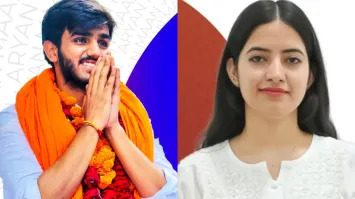
NSUI managed to secure only the vice president’s post through Rahul Jhansla, while ABVP’s Kunal Chaudhary and Deepika Jha bagged the secretary and joint secretary seats, respectively. Voter turnout stood at 39% of the 2.75 lakh eligible students, reflecting the scale of the contest but also the apathy that has crept into student politics.
Maan vs. Joslyn: A battle of narratives
Maan campaigned aggressively on issues that had day-to-day relevance for students — subsidised metro passes, free Wi-Fi, better sports infrastructure, and disability-friendly campuses. His sports background, coupled with ABVP’s organisational muscle, gave him an edge. His candidacy was even boosted by endorsements from celebrities like Sanjay Dutt and Randeep Hooda.
Joslyn, on the other hand, brought history with her candidacy. The first woman in 17 years to contest the president’s post for NSUI.
Rahul Gandhi’s optics problem
For Rahul Gandhi, the result was particularly damaging in terms of optics. His social media call to Gen Z as the “defenders of democracy” was undercut within 24 hours by Delhi University students voting overwhelmingly for the ABVP. The contrast was too stark to ignore: Gandhi’s digital-first outreach versus ABVP’s boots-on-the-ground campus strategy.
It exposes a larger weakness in Congress’s youth politics. The NSUI has struggled for years to compete with ABVP’s organisational discipline, grassroots presence, and RSS-linked ideological pipeline. By reducing his youth outreach to influencer-driven branding, Rahul risks coming across as superficial, even performative — a gap students at DU clearly picked up on.
The political signal
DUSU elections have long been seen as a microcosm of national politics. Leaders like Arun Jaitley and Ajay Maken once cut their teeth here. For the ABVP, Aryan Maan’s victory reinforces its dominance and strengthens its narrative of being the natural home for student leadership.
For the Congress, however, the defeat is another reminder of its diminishing campus connect. Rahul Gandhi may hope to ride a global wave of Gen Z activism, but in India’s premier university, the message from young voters was unambiguous: rhetoric is no substitute for organisational credibility

